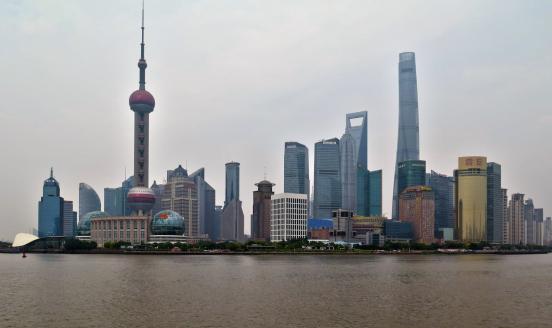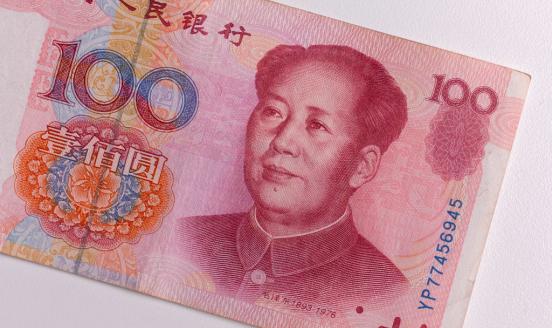The return of the get tough approach to China
What’s at stake: the political heat surrounding China’s currency policy intensified in Washington. For the first time in 16 years, thirty Congressmen are urging President Obama to label China a currency manipulator. The senators have proposed a bill that would require the Treasury to identify countries with “fundamentally misaligned currencies” as well as those that need to be tackled with “priority action”. Their efforts may have gained fresh impetus on the back of a recent flare-up in tensions between Beijing and Washington on issues including currency.
Paul Krugman writes that it’s time to take a stance on China’s policy of keeping its currency undervalued and proposes to impose a temporary 25 percent surcharge on Chinese imports. Some still argue that we must reason gently with China, not confront it. But we’ve been reasoning with China for years, as its surplus ballooned, and gotten nowhere. In 1971 the United States dealt with a similar but much less severe problem of foreign undervaluation by imposing a temporary 10 percent surcharge on imports, which was removed a few months later after Germany, Japan and other nations raised the dollar value of their currencies. At this point, it’s hard to see China changing its policies unless faced with the threat of similar action. In a follow-up blog post, Krugman clarifies the economics behind his stance on the issue. The main point is that China is exporting savings to a paradox of thrift world. By running an artificial CA surplus that is 1 percent of the combined GDPs of liquidity trap countries, China is in effect imposing an anti-stimulus of that magnitude – which plausibly means 1.5% of GDP. He also argues against the fallacies of elasticity pessimism – that is the claim that changing currency values would have little effect on trade flows, and discusses the political economy issue of how to deal with Chinese intransigence.
Ryan Avent writes that Krugman’s column is insensitive to the internal politics of foreign nations, blind to potential negative outcomes, reckless and impatient. Krugman is careful to explain why we shouldn't fear that China, as a major creditor, has the leverage to punish America, but it seems as though he has given no thought at all to what leverage America has over China. Neither does he seem to pay the least mind to the potential fallout from such a reckless rush to a more aggressive approach to China. Perhaps the decision to impose these surcharges will have the desired effect. Or perhaps, the Chinese government will retaliate, touching off a trade war at the worst possible economic moment. The potential upside to Mr Krugman's recommendation is trifling; the potential downside is massive. In another post, Avent points to an interesting graph by Jayati Ghosh of Triple Crisis and notes that China's household consumption level has long been extraordinarily low, even relative to other emerging markets, currency movements aside. In recent years, exchange rate shifts in China and America have not produced the changes in trade balances one might expect; suggesting that structural issues are an important reason for these persistent imbalances, further suggesting that the benefits of revaluation may not be that big.
The curious capitalist notes that economists have come up with wildly disparate estimates of where the yuan should be. The Peterson Institute for International Economics figured in a January study that the yuan was undervalued in a big way and should appreciate a whopping 41% against the dollar from its current level. The International Monetary Fund has also come out clearly that the yuan is too cheap, stating in a February report that it was substantially undervalued from a medium-term perspective. But Jim O'Neill, head of global economics at Goldman Sachs, took the opposite view in a March report. Goldman's models, he wrote, used to show that the CNY was undervalued but it is not any longer as the CNY has risen by close to 20% on a trade-weighted basis in real terms.
Michael Pettis outlines what the impact of an RMB revaluation would be for China and the world. A revaluation shifts wealth from the Chinese government and the manufacturing sectors to Chinese households. It also helps reduce one of the many mechanisms by which households are forced to subsidise production and investment. Such a change shouldn’t be much of a problem for the Chinese economy if it happens slowly. As Chinese manufactures gradually lose their subsidies, they will rely more than ever on the consequent rising Chinese consumption, and so domestic consumption will replace subsidized foreign demand as the source of growth. But China cannot adjust too quickly. If Beijing removes the implicit subsidies, including those caused by the undervalued exchange rate, too rapidly, that could force large-scale bankruptcies as Chinese manufacturers found themselves unable to compete globally or at home. If these bankruptcies forced up unemployment, then paradoxically even as the transfers from households to businesses are being reversed, household income would nonetheless decline as unemployment soared. Rebalancing cannot happen too quickly without risking throwing the economy into a tailspin.
Jeffrey Frieden has a recent Council of Foreign Relations working paper analysing the political economy of rebalancing. In deficit and surplus nations alike, the attempt to adjust to a new international economic reality will almost certainly lead to major conflicts within nations and among nations. What are these conflicts likely to be, and what do they say about prospects for the future? For guidance, one turns to history and theory. The paper reviews some of the extensive historical record on how the world economy, and the countries within it, has attempted to redress macroeconomic imbalances. He warns that the coming adjustments may test the capacity of national governments and international institutions to maintain an open international economic order.
Edward Hught notes that it’s curious how one and the same message is emanating from both Beijing and Berlin at the moment: “don’t blame us, it’s not our fault”. The Chinese statements came just a day after similar reactions had been heard in Germany following Christine Lagarde’s attempts to mediate in the growing conflict between Europe’s centre and its periphery about how to restore growth to the Eurogroup. Martin Wolf writes that China and Germany (“Chermany” in his own words) are actually uniting to impose global deflation. Both believe that their customers should keep buying, but stop irresponsible borrowing. Since their surpluses entail others’ deficits, this position is incoherent. Michael Pettis also outlines that this is not only a story about China as there are several countries with structurally low consumption and high production. If we want to resolve the global imbalances in an optimal way that maximises global growth and equity, we would need all the major problem countries to work out a program, perhaps over 8 to 10 years, in which China, Japan and Germany take concrete measures to shift subsidies away from manufacturers and return the income to households, and the US, the UK and other deficit countries shift income from households to investment.
*Bruegel Economic Blogs Review is an information service that surveys external blogs. It does not survey Bruegel’s own publications, nor does it include comments by Bruegel authors.


